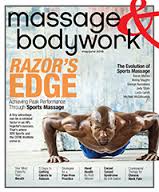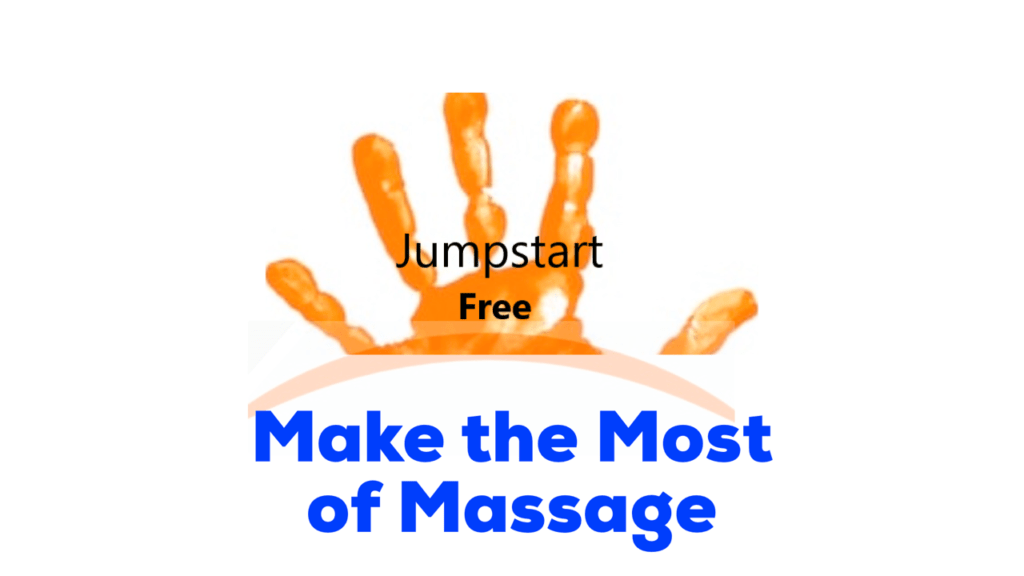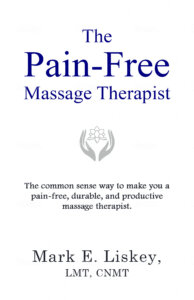Pam had a neck problem and had come to see me. I was working for a chiropractor at the time and had recently been certified in neuromuscular massage therapy. During the intake Pam talked about how she hurt her neck and I diligently took notes. While she was changing, I figured out which muscles I was going to focus on. I went back into the room and did the massage. After she left I changed the table for the next client, but before I had finished the chiropractic stepped into the room to deliver some bad news. Pam did not like the massage.
Needless to say, I was upset. What had I done wrong? The chiropractor offered a piece of constructive criticism. He said that I was being too clinical. I thought about what he had said and after a few more awkward massage endings I started to see that it was deeper than just me being too clinical: I didn’t know how to connect with the client.
Disconnected
When you connect with a client, the client feels that you value her. For instance, if you had asked me to describe Pam’s pain condition a few days after I had done the massage, I would have said her right, cervical erectors were hypertonic. But if you had asked me to recall one detail about her life, I would have drawn a blank. The fact that I viewed Pam only as a “patient” and not as a whole person made her feel disconnected to me.
Obstacles in the Way
Sometimes there are obstacles in the way to connecting with a client. One obstacle is time—we have to get a lot done (intake, massage, wrap-up, change the table) in a short period of time. Feeling rushed sometimes means we chop out any small talk during the intake and miss an opportunity to connect.
Lack of confidence as an MT can be another obstacle. Looking back I now see that when I worked on Pam I over-emphasized neuromuscular therapy during the intake and avoided interaction on a personal level because she might had seen that I was nervous.
Lack of confidence can also be situational. You could simply be having a low confidence day in your personal life which could have a global effect and spill over into your work life. No matter the obstacle, here’s a way around it.
Instant Connection
Listening is an important component to connecting with a client, but listening by itself is not connecting. To connect you need to demonstrate to the client that you were listening. In other words, you need to let the client know that you heard her. One way to do that is to immediately acknowledge that you heard the client by responding to her right then. For example, the client says that she likes to eat pizza. You might ask: What’s your favorite type of pizza?
However, for greater connectivity impact, hypnotist Mark Tyrrell (his blog) suggests that instead of acknowledging a detail about the client’s life right away, hold back and work that detail into the conversation later. For example, applying Tyrrell’s suggestion to massage, when doing the intake with your client write down a trivial (unrelated to the massage) thing that client has said in passing, but don’t comment on it then. At a later point during the massage (if appropriate) or after the massage, work that piece of trivia back into the conversation. Tyrrell explains that when you don’t immediately acknowledge the small detail of life that the client shares with you, the client forgets about it. And when you bring it up later the client thinks: “Wow, she really was listening to me to remember that detail!”
Cheesy?
On the surface gathering details about a client’s life and then working them into a conversation later may seem a little cheesy. However, in the massage setting this planned connectivity is a tremendous way to build therapeutic rapport. It also forces us to see the client as a whole, rather than just a person with a pain condition. And for anyone struggling with confidence, it’s a great way to develop therapeutic rapport with the client without having to put yourself out there during the intake.
Need More Help?
Sign up for my email group and get my latest info. It’s free and you can unsubscribe whenever you want:-)







Comments on this entry are closed.